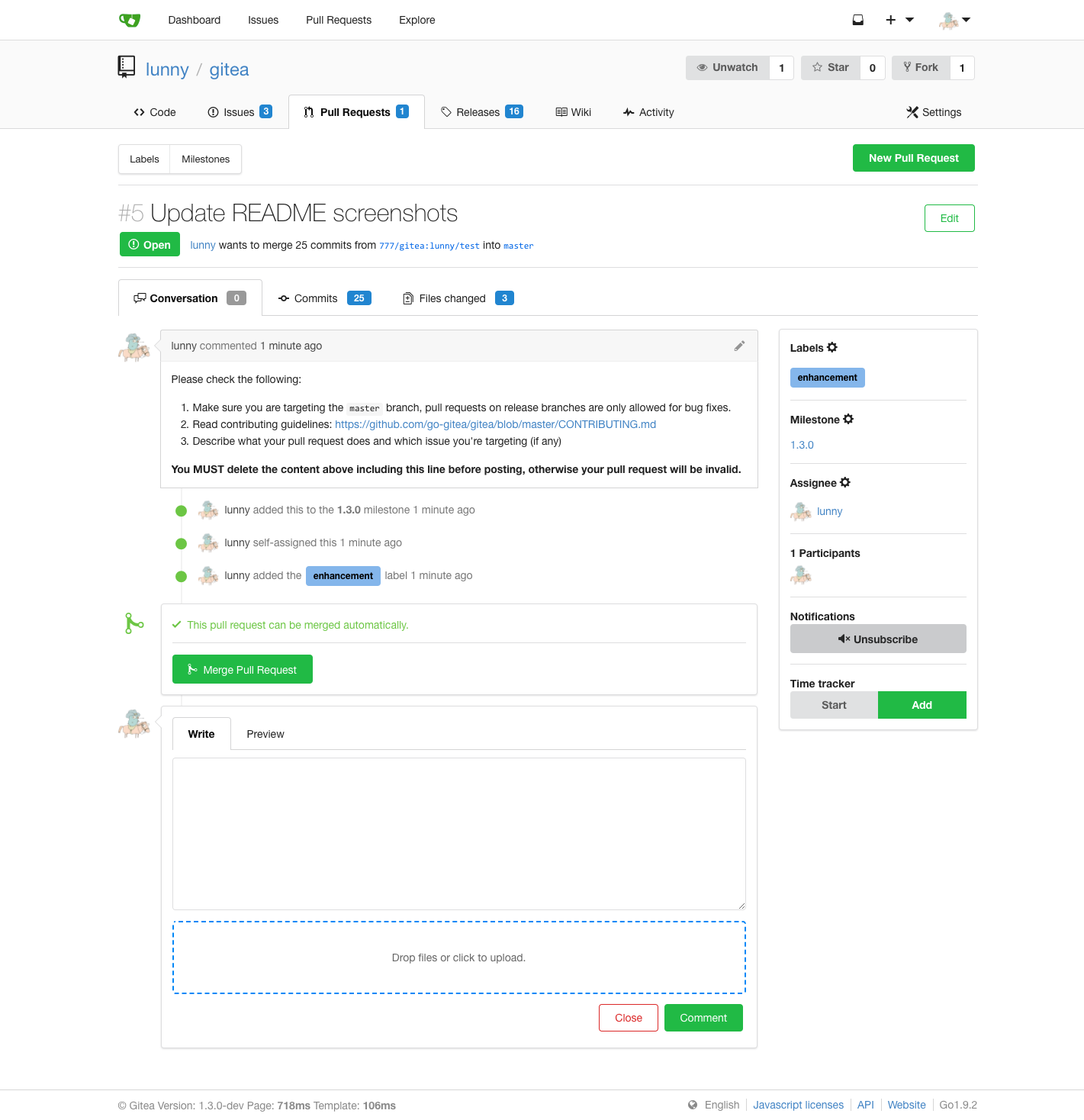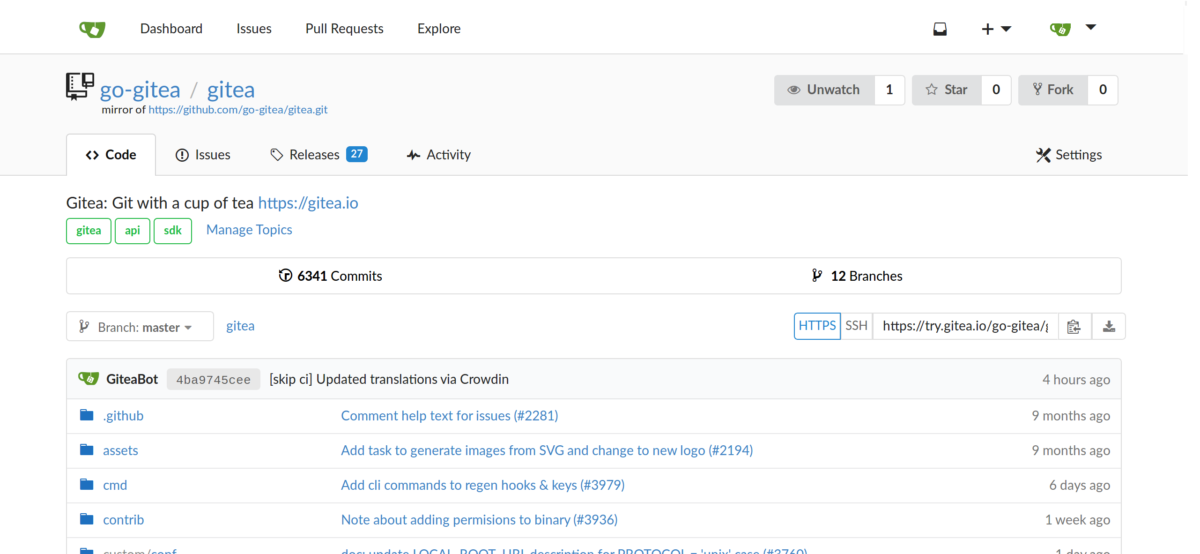 If you are looking for a new Git service to try and you are not familiar with Gitea, you are in the right place! Today we take a closer look at this self-hosted Git service and its newest release 1.7.0.
If you are looking for a new Git service to try and you are not familiar with Gitea, you are in the right place! Today we take a closer look at this self-hosted Git service and its newest release 1.7.0.
Are you in the mood for something new? Meet Gitea, a self-hosted Git service.
To be more precise, it is a community fork of the popular self-hosted Git service Gogs and its goal is to provide an easier, faster, and less painful way of setting up a self-hosted Git service.
Its main features include:
- Cross-platform – Gitea runs anywhere Go can compile for Windows, macOS, Linux, ARM, etc.
- Easy to install – Simply run the binary for your platform. Or ship Gitea with Docker or Vagrant, or get it packaged.
- Lightweight – Gitea has low minimum requirements and can run on an inexpensive Raspberry Pi. Save your machine energy.
- Open Source – You can find everything on GitHub. Join the project by contributing to make Gitea better. As the Gitea team says, “don’t be shy to be a contributor.”
Head over to the official documentation for the extensive list of features.
Everything new
 Now that we had a first look at Gitea, let’s see what’s featured in the new release 1.7.0. After merging 157 pull requests, the team finalized a number of features. Here are the highlights:
Now that we had a first look at Gitea, let’s see what’s featured in the new release 1.7.0. After merging 157 pull requests, the team finalized a number of features. Here are the highlights:
User action heatmap – Now user’s action heatmap will be shown on your first login page and user’s profile page.
Show review summary in pull requests – A review summary now will be shown on the bottom of a pull request.
Approvals at Branch Protection – You can add approvals limitations to branch protection. A pull request could only be merged after serval approvals.
Implement pasting image from clipboard for browsers that support it – Implemented pasting image from clipboard in new issue text area or adding issue/pr comments.
Create Progressive Web App – This allows users (especially on Android) to add the Gitea website to the home-screen and use it as a native app.
Check out the official release notes for the full list of changes.
 Getting started
Getting started
If you are interested in getting started with Gitea, you should make sure you fulfill the following requirements:
- A Raspberry Pi 3 is powerful enough to run Gitea for small workloads.
- 2 CPU cores and 1GB RAM is typically sufficient for small teams/projects.
- Gitea should be run with a dedicated non-root system account on UNIX-type systems. Also keep in mind that Gitea manages the
~/.ssh/authorized_keysfile. Running Gitea as a regular user could break that user’s ability to log in.
Head over to the Gitea documentations for all the relevant information.
